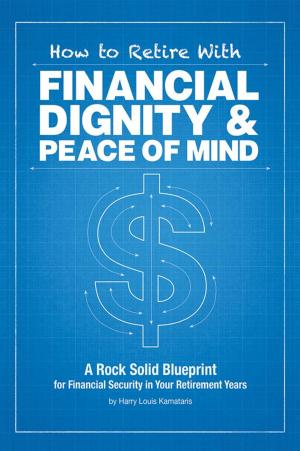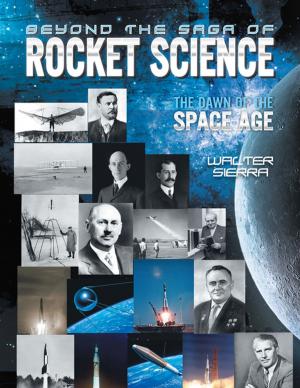| Author: | Gurdip Sidhu | ISBN: | 9781462827473 |
| Publisher: | Xlibris US | Publication: | January 4, 2005 |
| Imprint: | Xlibris US | Language: | English |
| Author: | Gurdip Sidhu |
| ISBN: | 9781462827473 |
| Publisher: | Xlibris US |
| Publication: | January 4, 2005 |
| Imprint: | Xlibris US |
| Language: | English |
About the most important items in life anywhere are love and marriage. Imagine a certain land, the Land of Mystical Enlightenment, where the former is frowned upon and the latter feverishly encouraged. One normally hopes that the first will lead to the second, but here that is the fear. Over 95% (a conservative estimate) of the marriages are arranged. Parents choose spouses, even among the well educated. There is no dating; it certainly was not in 1953, the year in which the story is set. A small rich fraction in the bigger cities indulged in it then, though there are more today, but its undesirability, to parental eyes, ensures that love affairs remain surreptitious, and largely fruitless. There is a strong commercial motive in many an arranged marriage: the dowry. The financial sums have recently reached astronomical proportions. If you have daughters, educated or not, your finances will be sorely tested. The cause is a cosmology invented over three millennia ago. This reality, you, me, the universe, all that you can sense and infer, is relegated to the category of illusions. The real reality is beyond the senses or reason. It is amenable only to an inward gaze, using the mystical concept, supra-rational intuition. You could call it meditation, but it is not thinking as we know it. You do not meditate on anything that you know or can sense. What you do is eliminate from your mind all that you think is. What is left then is the absolute Reality. You and I might imagine that that means a blank, but not to the cosmologists. This blank, for them, is all-powerful. It is, in fact, what is creating the illusion that we so ignorantly call reality. It, this blank, decided in the long-ago time of antiquity, to divide mankind into different levels, each with its own assigned tasks and duties, each with its own destiny. The cosmologists called it Caste or Class.
Ah! A light glows in your mind. Yes, you are right, this is India. And you also might see why love, with its propensity to marriage, or at least cohabitation, cannot be permitted free rein. If it must occur, it must be within this mystically-inspired division of labor and rewards. But even this restricted love is risky; who knows what may go wrong? After all, love has never been a tamable force. So you play it safe: you arrange everything, particularly that which will last a lifetime, such as marriage. As an ancillary maneuver, you subjugate women, those temptresses who might be considered the biggest threat to your plan; and you eliminate all that may awaken the forbidden thought, love. To this end, you forbid the earthly creators of illusion, the film-stars, to kiss in the movies.
There you have it. They Dont Kiss in The Movies. Indeed, they dont! A fact of Indian cinema till recently, it is the essence of Indian culture. It is a defensive attitude to life that says that it is better to play it safe than dare to live fully. May be the powers that be feel subliminally that their grand scheme of things may otherwise totter. But that which they would fain create is not safe at all, for it precludes unbridled happiness, joy, motivation, and much else that makes life worth living. Yet, even kiss-less, the movies flourish. With the worlds largest output of celluloid, greater than Hollywood, Indian movies are a major social institution. In the absence of love, they are Indias opiates. They soothe the frustrated, their vicarious pleasures are the cultures safety valve, and their impossible stories are more probable than the ideal cosmologists uphold. Kissing, that unequivocal expression of love, banished from the silver screen, is much feared by the censors.
So what do we have then? We have a song-and-dance routine. What would take barely a minute, now takes a half-hour to forty-five minutes. Half the movie-makers problems of what to show are
About the most important items in life anywhere are love and marriage. Imagine a certain land, the Land of Mystical Enlightenment, where the former is frowned upon and the latter feverishly encouraged. One normally hopes that the first will lead to the second, but here that is the fear. Over 95% (a conservative estimate) of the marriages are arranged. Parents choose spouses, even among the well educated. There is no dating; it certainly was not in 1953, the year in which the story is set. A small rich fraction in the bigger cities indulged in it then, though there are more today, but its undesirability, to parental eyes, ensures that love affairs remain surreptitious, and largely fruitless. There is a strong commercial motive in many an arranged marriage: the dowry. The financial sums have recently reached astronomical proportions. If you have daughters, educated or not, your finances will be sorely tested. The cause is a cosmology invented over three millennia ago. This reality, you, me, the universe, all that you can sense and infer, is relegated to the category of illusions. The real reality is beyond the senses or reason. It is amenable only to an inward gaze, using the mystical concept, supra-rational intuition. You could call it meditation, but it is not thinking as we know it. You do not meditate on anything that you know or can sense. What you do is eliminate from your mind all that you think is. What is left then is the absolute Reality. You and I might imagine that that means a blank, but not to the cosmologists. This blank, for them, is all-powerful. It is, in fact, what is creating the illusion that we so ignorantly call reality. It, this blank, decided in the long-ago time of antiquity, to divide mankind into different levels, each with its own assigned tasks and duties, each with its own destiny. The cosmologists called it Caste or Class.
Ah! A light glows in your mind. Yes, you are right, this is India. And you also might see why love, with its propensity to marriage, or at least cohabitation, cannot be permitted free rein. If it must occur, it must be within this mystically-inspired division of labor and rewards. But even this restricted love is risky; who knows what may go wrong? After all, love has never been a tamable force. So you play it safe: you arrange everything, particularly that which will last a lifetime, such as marriage. As an ancillary maneuver, you subjugate women, those temptresses who might be considered the biggest threat to your plan; and you eliminate all that may awaken the forbidden thought, love. To this end, you forbid the earthly creators of illusion, the film-stars, to kiss in the movies.
There you have it. They Dont Kiss in The Movies. Indeed, they dont! A fact of Indian cinema till recently, it is the essence of Indian culture. It is a defensive attitude to life that says that it is better to play it safe than dare to live fully. May be the powers that be feel subliminally that their grand scheme of things may otherwise totter. But that which they would fain create is not safe at all, for it precludes unbridled happiness, joy, motivation, and much else that makes life worth living. Yet, even kiss-less, the movies flourish. With the worlds largest output of celluloid, greater than Hollywood, Indian movies are a major social institution. In the absence of love, they are Indias opiates. They soothe the frustrated, their vicarious pleasures are the cultures safety valve, and their impossible stories are more probable than the ideal cosmologists uphold. Kissing, that unequivocal expression of love, banished from the silver screen, is much feared by the censors.
So what do we have then? We have a song-and-dance routine. What would take barely a minute, now takes a half-hour to forty-five minutes. Half the movie-makers problems of what to show are















